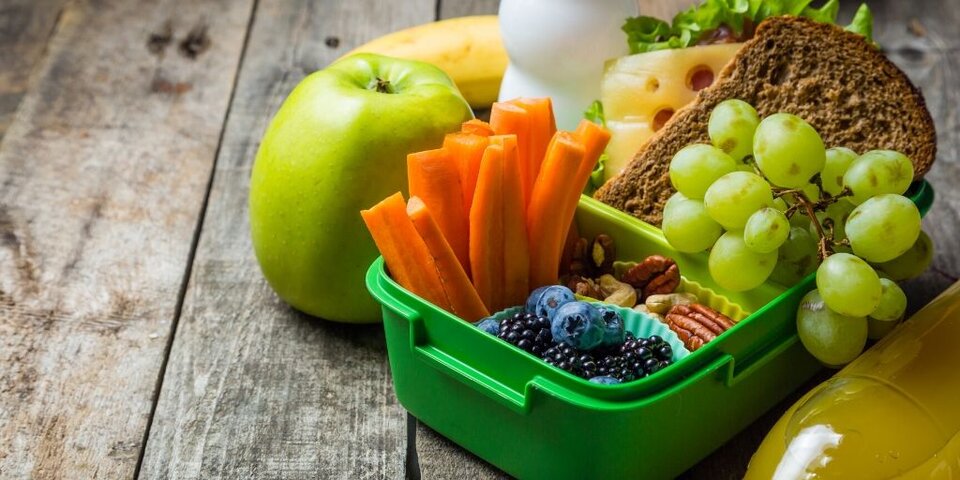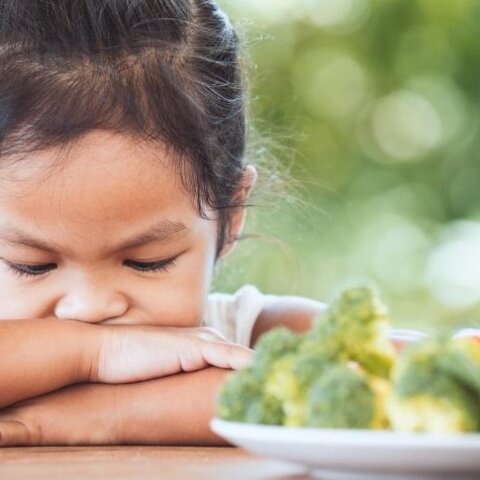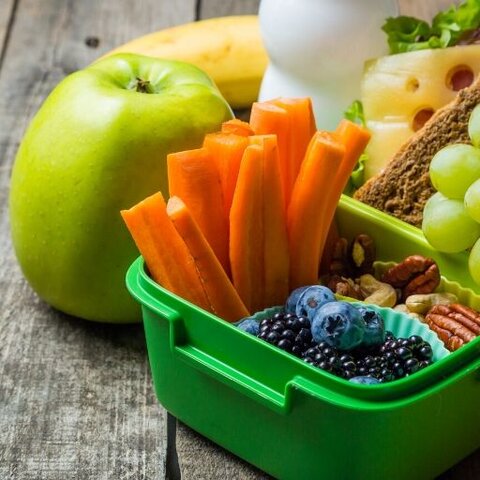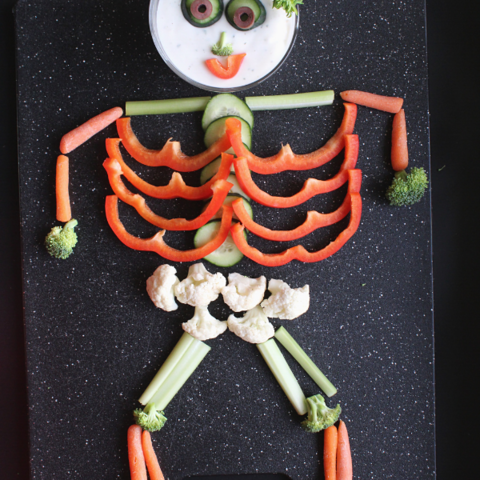
What you say matters when it comes to the eating behaviors of young children. For better or worse, eating behaviors formed during childhood often follow a person into adulthood. Eating behaviors play a key role in one's ability to maintain a healthy relationship with food for a lifetime. The messages a child regularly hears regarding food—in both the home and caregiver settings—can either help or hinder this development process.
Phrases That Hinder
- "I will be sad/mad if you don't eat that" or "You're a good boy for finishing your broccoli." These phrases teach children to eat for approval, ignoring their own signals of hunger, fullness and personal preference in the process.
- "Eat one more bite before you leave the table." This phrase teaches children to ignore feelings of fullness. It is better to stop eating when satisfied, rather than when the plate is clean. Over time, children and parents/caregivers will better understand what portion sizes are needed to feel satisfied, meaning less food left uneaten on the plate.
- "That didn't taste so bad." This phrase teaches children that their own personal preferences are wrong and can lead to unhealthy attitudes about food or self.
- "You can have dessert if you eat your vegetables" or "If you stop crying, you can have a piece of candy." Offering dessert as a reward for finishing vegetables teaches children that some foods are inherently better tasting than others. Using food to resolve upset feelings teaches children to eat to feel better, which can lead to overeating.
Phrases That Help
- "This strawberry is sweet and juicy" or "These carrots are crunchy." These phrases teach children to pay close attention to the sensory qualities that make each food unique and can be used to encourage children to try new foods in a mindful way.
- "Are you feeling hungry?" or "Are you feeling full?" These phrases can seem a bit obvious, but it's important to teach children to recognize feelings of hunger and fullness. This can prevent overeating and eating for reasons other than satisfying hunger.
- "Everybody likes different foods" or "Which one is your favorite?" These phrases acknowledge a child's ability to make choices regarding the food they eat. It also shifts the focus toward the taste of food, rather than who was right.
- "I am sorry you are sad. Would a hug help you feel better?" Instead of using food, reward children with your undivided attention and concern. Comfort each unique and individual child in the ways that work best for them.
Caring for and feeding young children comes with daily challenges, many of which shift and change in unexpected ways as the child grows and develops. If you've spoken the hindering phrases listed above in moments of frustration, or with the well-meaning goal of getting a child to eat their peas, know that you are not alone. Once we gain a better understanding, we can strive to improve our approach for the children in our care.
Source:
Phrases that Help and Hinder, MyPlate, United States Department of Agriculture (USDA)
This newsletter was written by Tara Dunker and has been peer-reviewed. It was updated in 2025.
Tags:







